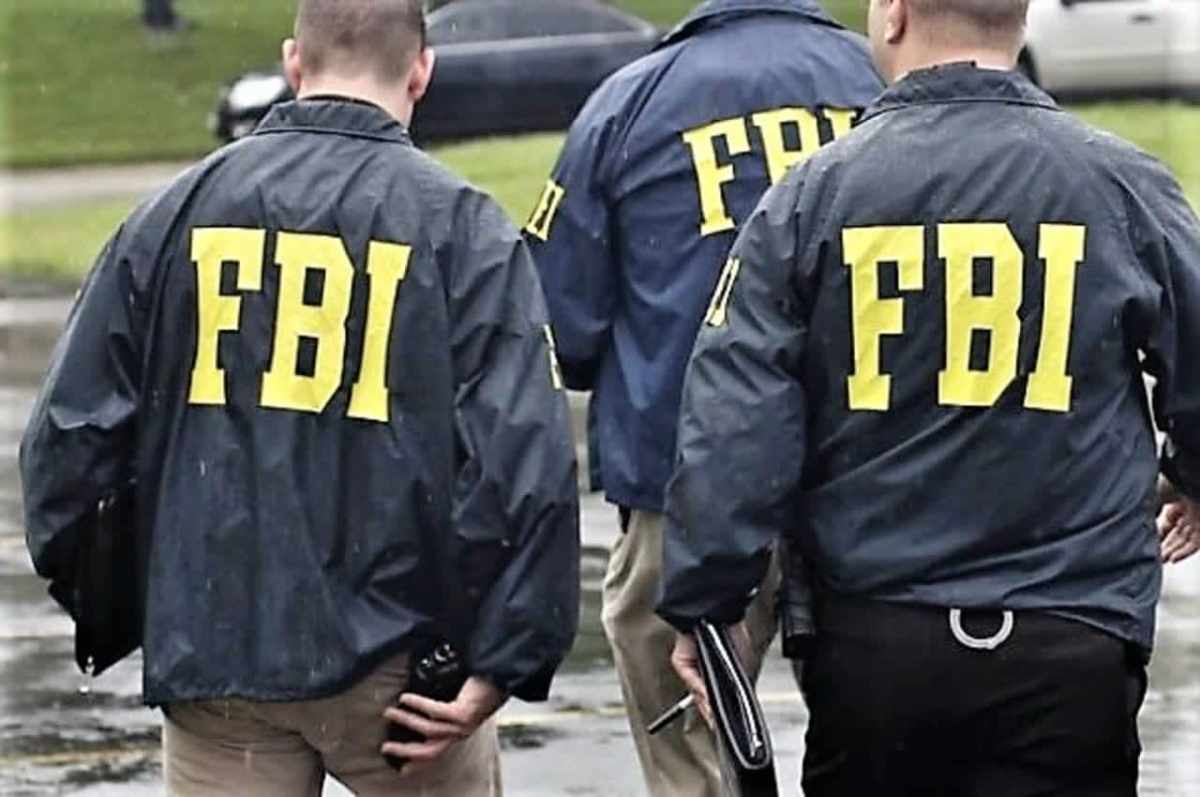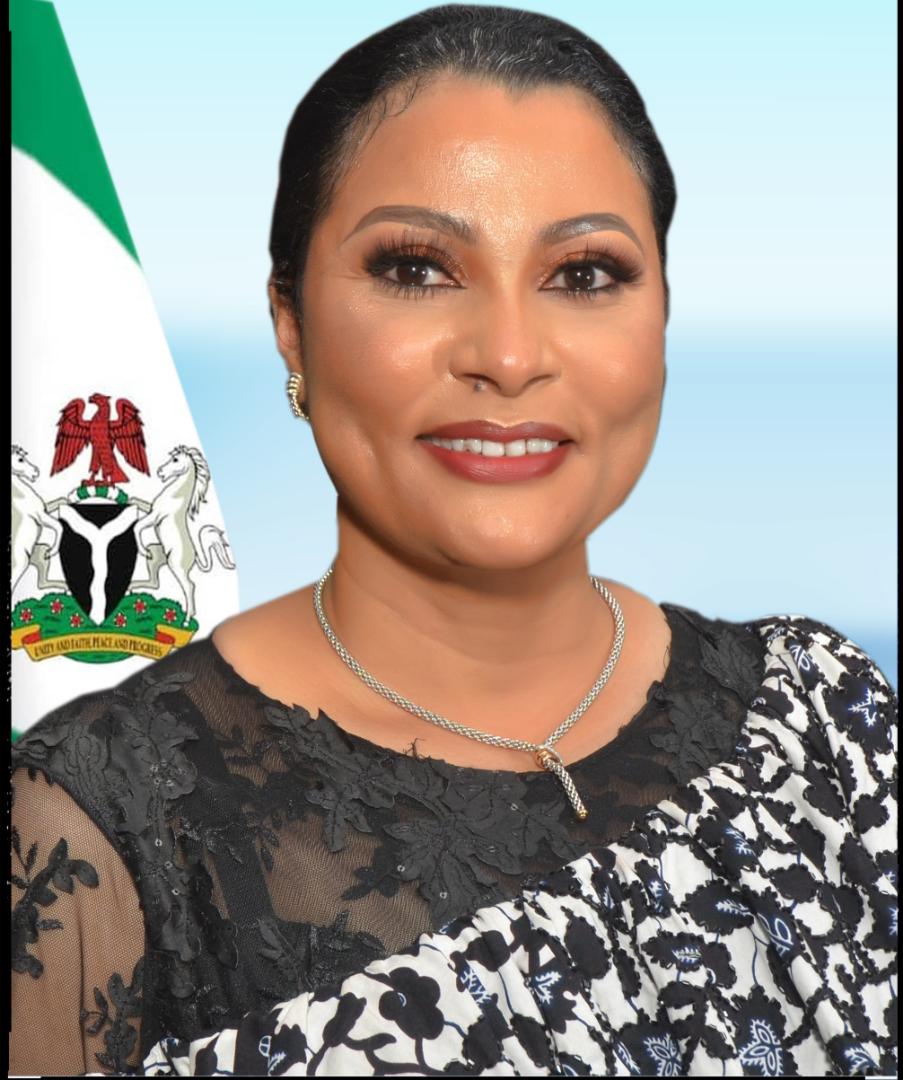Uncategorized
Nigeria cybercrime syndicate targeting 50,000 firms busted, 11 suspects arrested – Interpol

A high network cybercrime syndicate operating in Nigeria known as SilverTerrier, has been busted.
Eleven people suspected to be members of the gang were also arrested and found with 800,000 passwords targeting 50,000 companies and individuals, according to the latest report from Interpol released on Wednesday.
The international policing agency said the suspects appeared to have targeted as many as 50,000 different individuals and companies via so-called “Business Email Compromise.”
They are said to operate by intercepting emails, either via hacking into accounts or spoofing email addresses, and trick companies into sending funds to the fraudsters rather than business partners with whom they believed they were interacting.
BEC is said to remain the most costly kind of fraud to Americans.
According to the FBI’s most recent annual cybercrime report, losses totalled $1.8 billion in 2020 alone, with global losses estimated to be close to $5 billion in the years between 2018 and 2020. That makes it a far more financially damaging crime than ransomware, one of the better-known kinds of cyberattack.
The SilverTerrier gang is known as one of the more successful BEC fraud groups, said Interpol, adding that initial analysis of one of the 11 suspects’ computers indicated they were in possession of more than 800,000 usernames and passwords, which could potentially have been used to hack into company email accounts.
Another suspect was found to be monitoring conversations between 16 companies and their clients to divert legitimate transactions just as they were about to be made, Interpol said.
Nigeria’s assistant inspector general of police Garba Baba Umar said that working with Interpol, he was able to “give the order to hunt down these globally active criminals nationwide, flushing them out no matter where they tried to hide in my country.”
The report also quoted Craig Jones, Interpol’s director of cybercrime, as saying, “Interpol is closing ranks on gangs like SilverTerrier. As investigations continue to unfold, we are building a very clear picture of how such groups function and corrupt for financial gain… We know where and whom to target next.”
The report also stated that Money Team Cybersecurity company Palo Alto Networks tracked all BEC fraud coming out of Nigeria under the name SilverTerrier and found that among the nearly 500 different “actors” involved, they were “often connected through only a few degrees of separation on social media platforms,” showing links between over 120 actors.
Forbes also in the same report quoted Palo Alto as saying it had assisted in the Interpol investigation and provided details on some of the individuals arrested.
“This operation was novel in its approach in that it didn’t target the easily identifiable money mules or flashy Instagram influencers who are typically seen benefiting from these schemes. Instead, this operation focused predominantly on the technical backbone of BEC operations by targeting the actors who possess the skills and knowledge to build and deploy the malware and domain infrastructure used in these schemes,” the company post read.
The company claimed that one of those arrested had previously been apprehended by the FBI in 2018.
“His recent arrest marks one of the first known instances of a Nigerian actor being arrested twice for BEC,” it added. Another suspect was part of an organization called “The Money Team” or TMT , which has ostensibly legitimate businesses, including one that makes professional cakes and another that claims to be one of Nigeria’s biggest travel and tour providers.
Palo Alto claimed one of those arrested in Nigeria for BEC fraud was helping run a seemingly legitimate business.
“After compromising a patient zero, fraudsters analyzed their email correspondence. By enabling special filtering of emails, the cybercriminals ensured that interesting emails (containing payment information) addressed to the victim are first redirected to fraudsters’ fake email boxes or are hidden from the victim in service directories,” a company spokesperson told Forbes.
Group-IB provided Forbes with an example phishing email, showing how the gang posed as legitimate employees and encouraged swift payment into their bank accounts.
Business
N50,000 presidential grant: 100,000 small businesses benefit in first phase

N50,000 presidential grant: 100,000 small businesses benefit in first phase
A total of 100,000 small businesses across the country have so far received a presidential grant of N50,000 under the first phase of the Trade Grants Scheme.
Minister of Industry, Trade and Investment, Doris Uzoka-Anite, disclosed this, adding that one million nano businesses would benefit from the scheme.
A report by Saturday Punch quoted the minister as saying this through her aide, Terfa Gyado, in an interview with the newspaper.
Newstrends notes that the grant aimed at driving sustainable economic growth at the grassroots level will be disbursed with 70 per cent going to women and youths, 10 per cent individuals with disabilities, and five per cent senior citizens, and the remaining 15 per cent allocated to other groups.
Bank of Industry (BOI) was appointed as the executing agency for the funds.
The minister said the disbursement which began a few weeks ago would be distributed to 1,291 nano businesses in each of the 774 local governments in the country.
The Federal Government in December announced the Presidential Conditional Grant Scheme to empower small businesses as part of the Presidential Palliatives Programme.
It said a total of N200 billion would be disbursed through the BoI to support manufacturers and businesses across the country.
Aniete, giving an update on the scheme, said all verified applicants would receive their grants in subsequent phases.
The minister said, “The Presidential Conditional Grant Scheme kicked off a few weeks back and disbursement has been made to the first batch.
“Each grant applicant gets N50,000 while the applicants are judged by the criteria of owning a nano business and being verified using their Bank Verification Number and their National Identification Number.
“So those who were successfully verified on the nature of their business and all other criteria have been able to get some of the initial disbursement.”
The minister said the grant was paid directly to beneficiaries’ accounts after proper verifications with a target to reach one million small businesses in the 774 LGs and the six council areas in the Federal Capital Territory.
“The target is for one million nano businesses across the 774 local governments across the federation and that works out to a total of 1,291 nano businesses per local government and that is how the spread is going to be.
“So far, the disbursement has hit about 100,000 small businesses and they have got the initial disbursement and the target remains one million. “Disbursement is still ongoing and we are still waiting for data from across all the states and it is an ongoing process.”
News
FG to launch new national ID card for payment, others

FG to launch new national ID card for payment, others
The Federal Government says it has concluded arrangements to launch a new National Identity Card with payment and other social service features.
It said the New National Identity card would be delivered in collaboration with the Central Bank of Nigeria (CBN) and the Nigeria Inter-bank Settlement System (NIBSS).
The project would be powered by AfriGO, a national domestic card scheme, Head of Corporate Communications of NIMC, Dr Kayode Adegoke, announced in a statement in Abuja.
The statement read, ”The National ID card, layered with verifiable National Identity features, is backed by the National Identity Management Commission (NIMC) Act No. 23 of 2007, which mandates NIMC to enrol and issue a General Multipurpose card (GMPC) to Nigerians and legal residents.
“This card will address the demand for physical identification enabling cardholders to prove their identity, access government and private social services, facilitate financial inclusion for disenfranchised Nigerians, empower citizens, as well as encourage increased participation in nation-building.
“Only registered citizens and legal residents with the National Identification Number (NIN) will be eligible to request the card.
“The card, which will be produced according to ICAO standards, is positioned as the country’s default national identity card.
“In addition to this functionality, cardholders will also be able to use the cards as debit or prepaid cards by linking same to bank accounts of their choice.
“The card shall enable eligible persons especially those financially excluded from social and financial services have access to multiple government interventions programmes.”
Its key features are as follows:
Machine-readable Zone (MRZ) in conformation with ICAO for e-passport information
Identity card Issue Date and document number in line with ICAO standard.
Additional features are travel, health insurance information, microloans, agriculture, food stamps, transport, and energy subsidies, etc
Nigeria’s quick response code (NQR) containing the national identification number
Biometric authentication, such as fingerprint and pictures, as the primary medium for identity verification through the data on the card chip
Offline capability that allows transactions in areas with limited network coverage or zero infrastructure connectivity
“Functionality as a debit and prepaid card catering to both banked and unbanked individuals
Request for cards by registered citizens and legal residents will be made available online, at any commercial bank, various agencies or agents participating in multiple programs and/or any NIMC offices nationwide
News
JUST IN: Tinubu confers national honours on fallen soldiers, approves house, scholarships for families

JUST IN: Tinubu confers national honours on fallen soldiers, approves house, scholarships for families

President Bola Tinubu has conferred posthumous national honours on the four officers and 13 soldiers killed in Okuama, Delta State, on March 14, 2024.
The four officers have been accorded the Award of Member of the Order of Niger (MON) while the 13 courageous soldiers who also lost their lives were awarded the Officer of the Federal Republic (OFR).
The President said that the Federal Government would provide a house in any part of the country to each of the families of the four officers and 13 soldiers.
He also approved scholarships for all the children of the deceased up to the university level.
The President mandated the Military to, within the next 90 days, ensure that all the benefits of the departed are paid to their families.
Tinubu as Commander-in-Chief of the Armed Forces of the Federal Republic of Nigeria spoke on Wednesday at the National Cemetery in Abuja during the burial of the fallen soldiers.
Tinubu stated that Nigeria owes the valiant soldiers and their families debt of gratitude.
The President vowed that those who committed the heinous crime of killing the officers and soldiers would not go unpunished, stressing, “We will find them and our departed heroes will get justice.”
The fallen heroes are as follows:
Lieutenant Colonel Ali
Major D.E Obi
Major S.D. Ashafa
Captain U. Zakari
Staff Sergeant Yahaya Saidu
Corporal Danbaba Yahaya
Corporal Kabir Bashir
Lance Corporal Abdullahi Ibrahim
Lance Corporal Bulus Haruna
Lance Corporal Sole Opeyemi
Lance Corporal Bello Anas
Private Alhaji Isah
Private Clement Francis
Private Abubakar Ali
Private Adamu Ibrahim
Private Hamman Peter
Private Ibrahim Adamu
Part of Tinubu’s Speech
“It is with heavy heart that I join you today to commit to earth, the remains of our officers and men who died in the course of duty on 14 March 2024 in Okuama Community, Delta State.
“The officers and soldiers who lost their lives that day were patriots, brave and noble men who gave their lives to defend and protect our nation against internal and external threats. Their sacrifice will be remembered and honoured for generations to come and their.
“On 14 March, Lt. Colonel A. H. Ali, the Commanding Officer of 181 Amphibious Battalion, led three other officers and 13 soldiers to the Okuama Community to mediate in the lingering dispute with Okoloba Community.
“They went as peace makers and peace keepers respectfully seeking to bring an end to the hostilities between the two communities.
“They didn’t go with tanks, machine guns and other weapons. They were on a mission of peace.
“Before the dastardly attack, Lt. Colonel Ali, as the Chief of Army Staff briefed me, enjoyed great operational exploits; fighting terrorists and insurgents in the North East and North West before his deployment to the Niger Delta.
“Ali kept faith with his military calling till the end.
“On behalf of a grateful nation, we honour the sacrifice of Ali and the other gallant patriots who died that day. They will forever be remembered as heroes who answered the call of duty and paid the ultimate price.
“Each man now belongs to the hallowed list of servicemen and women who defended our country and protected their fellow Nigerians not minding the risk to their own lives.
“They have all been awarded posthumous national honours. The four gallant Officers have been accorded the Award of Member of the Order of Niger (MON). The thirteen courageous soldiers who also lost their lives have been Awarded the Officer of the Federal Republic Medal.
“I commiserate with the families of our fallen heroes and the entire Armed Forces. I share in the pain and grief you carry today. It is my prayer that God will comfort all who are bereaved as a result of this tragedy.”
-

 Education6 days ago
Education6 days agoWhy we charge N42m fees for primary school pupils — Charterhouse Lagos
-

 Auto7 days ago
Auto7 days agoWe expect massive roll-outs of Nigeria-made cars by December 2024 – Minister
-

 metro6 days ago
metro6 days agoJUST IN : Borrow pit collapses, kills seven Qur’anic school pupils
-

 News6 days ago
News6 days agoWe’re not part of Yoruba Nation agitation, says MKO Abiola family
-

 metro5 days ago
metro5 days agoHow gunmen killed Babcock university lecturer, abducted two – Police
-

 Politics6 days ago
Politics6 days agoOndo APC primary: Ododo, gov aspirant in open confrontation
-

 Business7 days ago
Business7 days agoN50,000 presidential grant: 100,000 small businesses benefit in first phase
-

 Sports6 days ago
Sports6 days agoArsenal beat Wolves to return to top spot






















